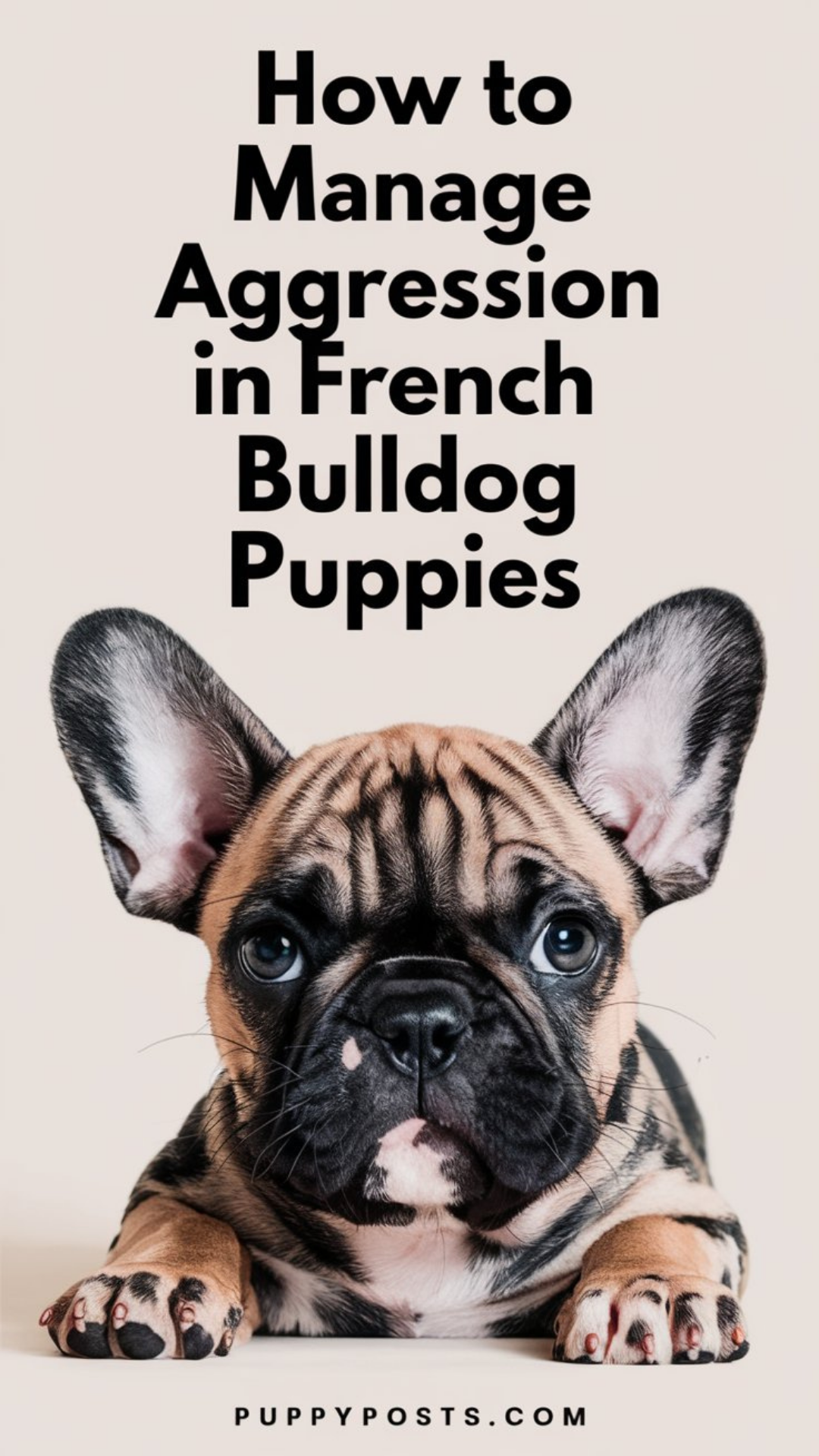How to manage aggression in French Bulldog puppies
Alright, listen up. French Bulldog puppies might look like cute little clowns, but aggression in these pups is no joke. I’ve seen it plenty over my ten years as a vet and sanctuary director. When a Frenchie shows signs of aggression, you don’t wait it out—you manage it with firm, calm action. Let me walk you through what you need to do to nip this behavior in the bud before it turns into a bigger problem.

1. Identify the Triggers Early
Know what sets your pup off.
- Watch closely for signs like growling, snapping, or stiff body language
- Pay attention to when and where the aggression happens—food, toys, strangers?
- Early identification helps you intervene before things escalate
- Don’t ignore subtle cues; they’re your warning signs
Be proactive, not reactive.
2. Set Clear Boundaries from Day One
French Bulldogs need limits—they can be stubborn little devils.
- Establish firm but fair rules around feeding, play, and handling
- Make sure everyone in the household enforces the same rules—no exceptions
- Teach bite inhibition and proper social behavior through controlled play
- Consistency is your best weapon against aggression
Boundaries build respect and safety.
3. Use Positive Reinforcement to Encourage Good Behavior
Punishment only fuels aggression—avoid it.
- Reward calm, non-aggressive behavior with treats, praise, or affection
- Use training sessions to reinforce commands like “sit,” “leave it,” and “stay”
- Keep training short and positive to hold your pup’s attention
- Redirect aggressive behavior toward acceptable outlets, like chew toys
Positive training changes behavior, plain and simple.
4. Socialize Carefully and Gradually
Frenchies can be wary—socialization is critical.
- Introduce your puppy to new people, dogs, and environments slowly
- Use positive experiences to build confidence and reduce fear-based aggression
- Avoid overwhelming your pup with too much too soon
- Controlled, positive socialization reduces triggers for aggression
Expose them carefully—don’t throw them to the wolves.
5. Stay Calm and Confident
Your attitude matters more than you think.
- Reacting with fear or anger only escalates the situation
- Approach aggressive moments with calm, firm control
- Your puppy looks to you for cues on how to respond—lead confidently
- Patience and steady energy help soothe anxious or aggressive pups
Lead like a rock, not a storm.
6. Know When to Get Professional Help
Don’t wait until it’s out of control.
- If aggression persists or worsens, consult a professional trainer or behaviorist
- Your vet can help rule out medical causes for aggression, like pain or illness
- Early intervention prevents small issues from becoming dangerous ones
- Getting help is smart, not shameful
You’re the leader, but sometimes you need backup.
Final Word: Manage Aggression with Calm, Consistency, and Care
Handling aggression in a French Bulldog puppy isn’t about being harsh—it’s about being firm, consistent, and calm. Know your pup’s triggers, set clear boundaries, use positive reinforcement, socialize carefully, and keep your cool. When needed, bring in professionals. Do this, and you’ll raise a Frenchie who’s confident, well-behaved, and a joy to be around.







